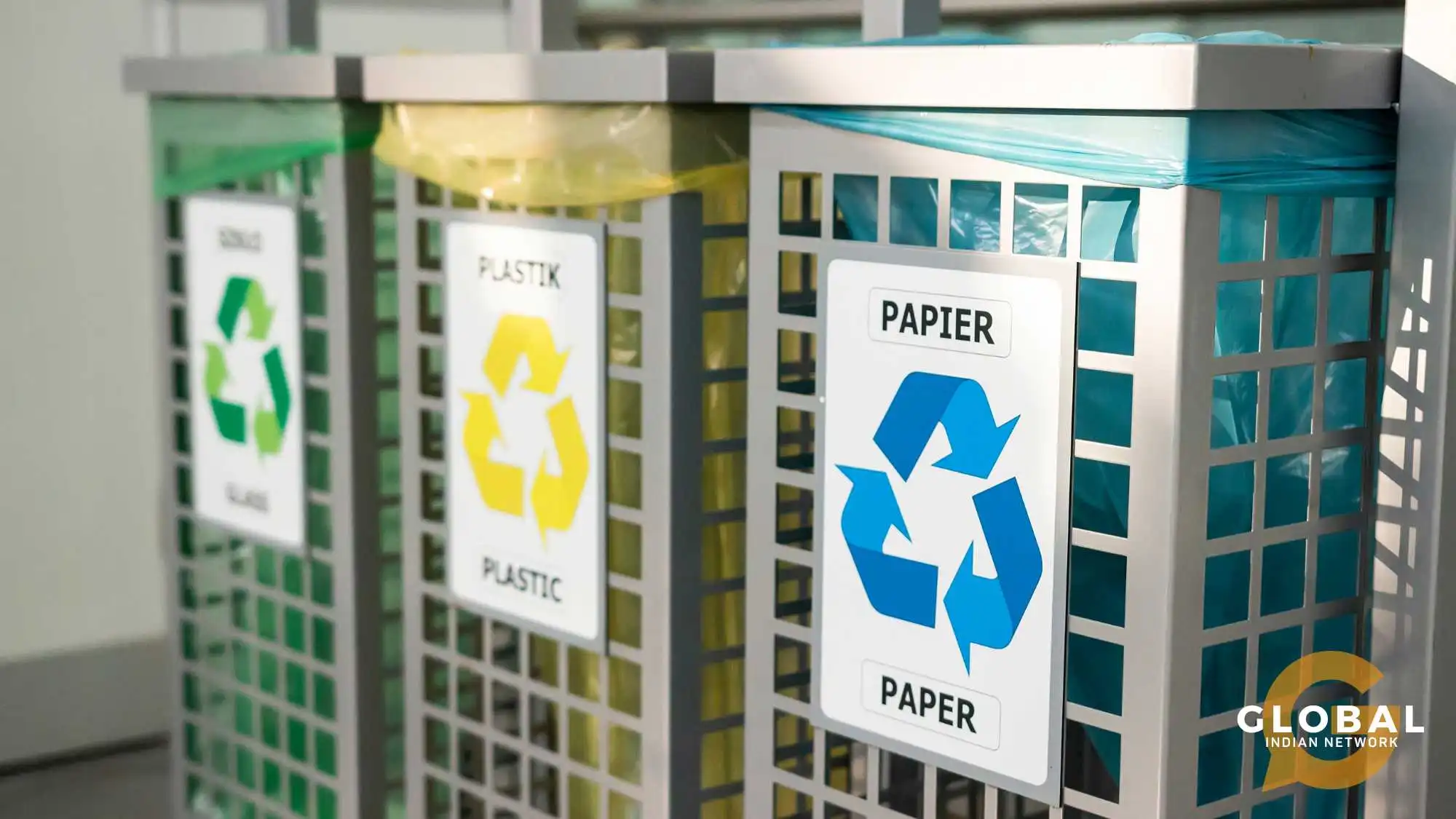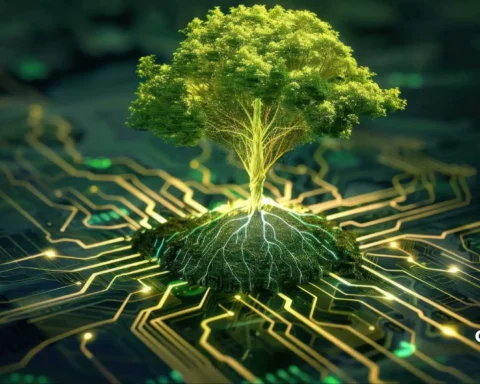Smart city waste management is leading the way to the future of clean cities. It is an effective solution when traditional waste management seems ineffective in dealing with the changing nature of waste. Environmental pollution and waterlogging directly impact our sustainable ways of living. Therefore, the smart city waste management system can ensure a clean and green environment.
Table of Contents
What is Meant By Smart City Waste Management?
Smart city waste management is an emerging concept that has taken prominence after the increase in the amount of waste generated and its complexities. Therefore, it is pertinent to make the best use of information and communication technology (ICT) to effectively manage the generation, sorting, collection, disposition, and even treatment of waste.
Therefore, the main impetus of smart city waste management is driven by Artificial Intelligence and IoT-enabled (Internet of Things) technologies. However, it is essential to know how this technology can be put to use.

Why are Smart Cities Required for Waste Management?
Smart cities can invest in human and social capital as well as information and communication technology. They ensure the life quality of citizens, the management of natural resources, and sustainable economic growth. Hence, waste management works efficiently in smart cities.
With the help of real-time data analytics and updated technologies, people get an overview of their consumption habits and the impacts of waste management. Therefore, smart cities connect various sectors, such as residential buildings, commercial and industrial establishments, hotels, healthcare institutes, the transport sector, and tourism spots, which enhances a comprehensive waste-management programme.
How Does Smart City Waste Management Work?
Smart city waste management works in a systematic pattern to ensure optimum results. They use many advanced technologies to ensure optimum waste management, which are as follows:
- Garbage Monitoring System: Many waste containers are strewn in many places, but smart city waste management enables smart bins. Infrared sensors and fire alert systems help monitor the waste bins to prevent overflow, waste dumping, and even fire. This reduces soil and air pollution and prevents stink.
- Truck route optimization: Sensors are used to identify the fastest collection routes to enhance maximum garbage collection at minimum transportation costs.
- Smart Waste Categorization and Collection System (SWCCS): An ICT-based (Information and Communication Technology) SWCSS optimizes garbage collection because of its fast sorting out approach, which is needed given the complexity of waste.
- Waste Sorting Robot: It can automatically identify and pick up waste materials and can even separate concrete, bricks, and mortar.
- Advanced recycling strategies: One essential technique for incorporating smart waste management is to adopt advanced recycling strategies. For example, pyrolysis can break down organic material into bio-oil or gas under high temperatures without combustion. This is ideal for waste management in large-scale operations.
Benefits of Smart City Waste Management
With the increasing population and complexities of waste, smart city waste management is the only solution. The benefits of this unique waste management are:
- Innovation in 3Rs: With artificial intelligence (AI) and sensor-based systems, it has become easier to classify, manage, and even recycle different types of waste, whether hazardous or non-hazardous. For example, Organic wastes are converted into biofuels, and electronic wastes are mined to gather precious metals.
- Economic and ecological sustainability: Using digital tools reduces environmental pollution, as the discarded materials can be reused, thereby contributing to the circular economy.
- Renewable energy: As fossil fuels are depleting day by day, advanced technologies like waste-to-energy technologies can be a good alternative. This technology converts non-recyclable wastes into heat, electricity, and fuel.
- Cost and Time-Effective: Since the Garbage Monitoring System enables trackers to know when the bins are overflowing, trucks do not need to manually check every bin. This, in turn, saves time and petrol or diesel costs.
- Less maintenance of trucks: If the trucks can follow truck route optimization, it will ensure less wear and tear and long maintenance of trucks and roads.
- Clean environment: Sensors can check overflowing bins, preventing infiltration. This reduces stinking, creating an odorless and healthy environment.
- Reducing traffic: Congestion on roads is effectively reduced due to truck route optimization.
- Citizen awareness: The most important factor concerning smart waste management is citizen engagement and awareness. User-friendly portals allow residents to interact and report waste management authorities directly in case of any discrepancy.
Overall, Smart city waste optimization has enabled more waste management efficiency than ever before.
Future Developments of Smart City Waste Management
Smart city waste management is the only solution for the present and future. Therefore, it needs to be updated from time to time to meet the standards and complexities of waste. Some of the proposed future developments of smart city waste management are:
- Research on the waste generation prediction model is ongoing, and it includes statistical and deep learning methods. Historical records of a place can even be utilized as data sets for predictive factors to implement waste management.
- Advancements in garbage monitoring systems can help classify waste into recyclable and non-recyclable categories, reducing labour costs.
- An integrated approach to smart waste management and smart air quality monitoring can be developed using the Internet of Things, which collects real-time data. This would facilitate the government’s frame of waste management strategies by maintaining air quality standards.
- Harnessing the potential of artificial intelligence in waste collection, reducing operational costs, and enhancing environmental sustainability are the keys to the future development of smart waste management. Link Labs serves as an example of how to take smart waste management to the next level.
How Much Has India Progressed in Smart City Waste Management?
Keeping at par with the changing world, the government of India has launched Clean Development Missions and Smart City Mission to maintain cleanliness and a sustainable environment in its smart cities. To qualify as a smart city, one needs to provide a decent quality of life to the citizens along with smart solutions. Therefore, a technology-based infrastructure is required in industries or waste management.
Nagpur serves as a role model for cities in India in the pathway of smart city waste management.
Nagpur
One of India’s most populous cities, Nagpur in Maharashtra is pioneering smart waste management to reduce its dependency on the Bhandewadi landfill. It has started a waste-segregation project, where organic waste is separated and then transported to the waste-to-fertilizer plant. A large-scale waste-to-energy plant is proposed to handle the rest of the daily unprocessed waste.
Nagpur is also using real-time information to monitor waste collection and improve street sanitization. Implementing weight sensors to track bin waste notifies the city operation centres when the garbage bins need to be emptied.
While Nagpur provides an inspiring example, Srinagar in Kashmir serves as an eye-opener. Despite governmental instructions, waste management systems have not improved.
RELATED:
- E-Waste Management in India: Building a Responsible Future
- Agri Waste Management: The Easy Guide to Reducing Your Environmental Impact
- The Future is Green: Innovative Waste Management Companies in India
- The Secret Weapon for Sustainable Living: Classification of Solid Waste
- Master Recycling: Understanding What Is Dry Waste And How To Sort It
- What is Meant by One Planet Living and How to Apply It?
- Plogging for a Cleaner India: Tackling India’s Litter Crisis with Ripu Daman Bevli
- World Environment Day Special: A Voice for Change with Ridhima Pandey
Conclusion
Smart city waste management is thus the only solution to tackle the humungous amount of urban waste generated every day. Manually tackling waste is becoming impossible because it is time-consuming and has associated risk factors for health. Therefore, technological developments and Artificial Intelligence, which saves time, energy, and money, can be trained or incorporated with more advanced settings to efficiently manage waste. This would indeed lead to a sustainable environment.

FAQs
What is smart city waste management?
Smart city waste management uses advanced technologies and the Internet of Things (IoT) to help in the efficient management of waste.
How to do waste management in a city?
Waste management in a city can be enabled by incorporating a garbage monitoring system, truck route optimization, waste sorting robot, etc.
What is a smart city concept?
A smart city enables a decent life for its citizens by incorporating advanced technologies as smart solutions to its problems.










[…] Waste management is the most important issue in our daily lives. This is because waste is increasing daily, and health and environment-related issues are also in a pathetic situation. Therefore, it becomes vital to think of a sustainable way to manage waste and waste-related issues. And, to think of sustainable waste management, the 4Rs of waste management come as a solution. […]